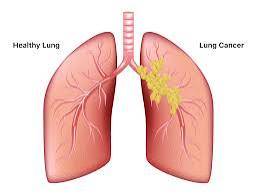Lung cancer is a widespread and deadly disease that continues to pose a significant health challenge worldwide. It is the leading cause of cancer-related deaths globally, accounting for more deaths than breast, colon, and prostate cancers combined. This type of cancer typically originates in the cells lining the air passages of the lungs and can quickly spread to other parts of the body if left untreated.
There are two main types of lung cancer: non-small cell lung cancer (NSCLC) and small cell lung cancer (SCLC). NSCLC is the most common type, comprising about 85% of all cases, while SCLC is more aggressive and tends to grow and spread at a faster rate.
The primary risk factor for developing lung cancer is tobacco smoke, with smokers being at the highest risk. Secondhand smoke, exposure to asbestos, radon gas, air pollution, and a family history of lung cancer are also known risk factors. Symptoms of lung cancer may include a persistent cough, chest pain, shortness of breath, unexplained weight loss, and coughing up blood.
Early detection of lung cancer is crucial for improving treatment outcomes and increasing the chances of survival. Diagnosis typically involves imaging tests such as chest X-rays and CT scans, as well as biopsy procedures to confirm the presence of cancerous cells. Treatment options for lung cancer depend on the type and stage of the disease but may include surgery, chemotherapy, radiation therapy, targeted therapy, and immunotherapy.
Prevention strategies for lung cancer include avoiding tobacco use, reducing exposure to environmental carcinogens, and maintaining a healthy lifestyle with regular exercise and a balanced diet. Public health initiatives aimed at promoting smoking cessation and raising awareness about the risks of lung cancer are essential in reducing the burden of this disease on society.
In conclusion, lung cancer remains a significant public health concern with far-reaching impacts on individuals, families, and communities. Continued research efforts, early detection, and effective prevention strategies are key to combating this deadly disease and improving outcomes for those affected by it.



No comments yet
Be the first to share your thoughts!